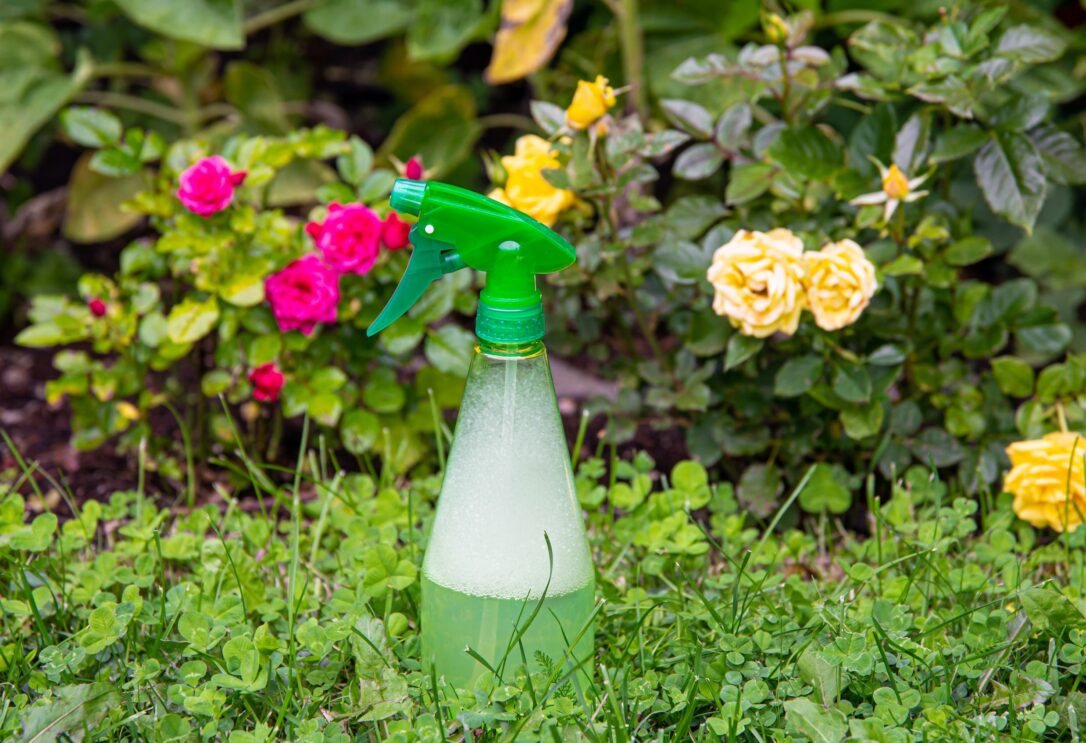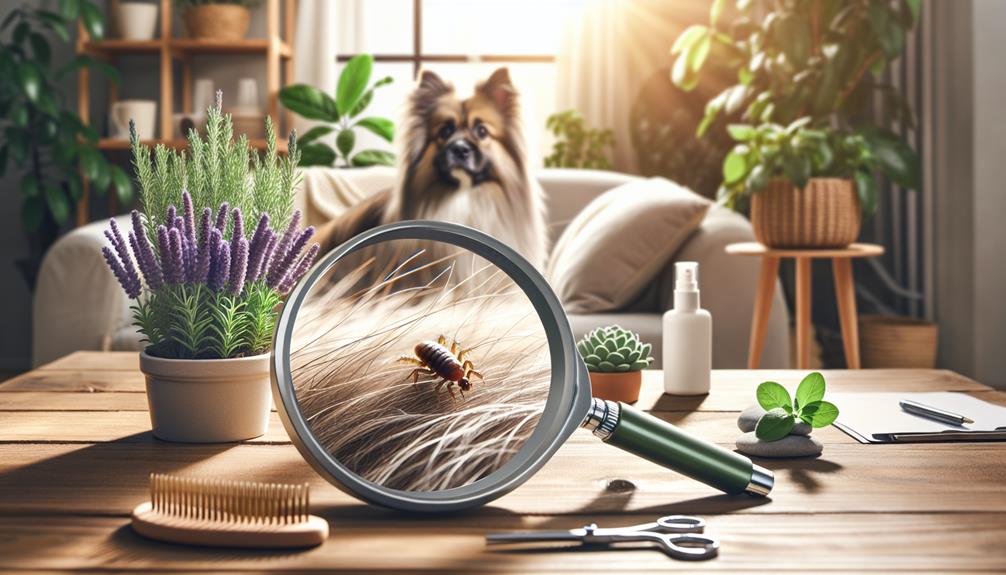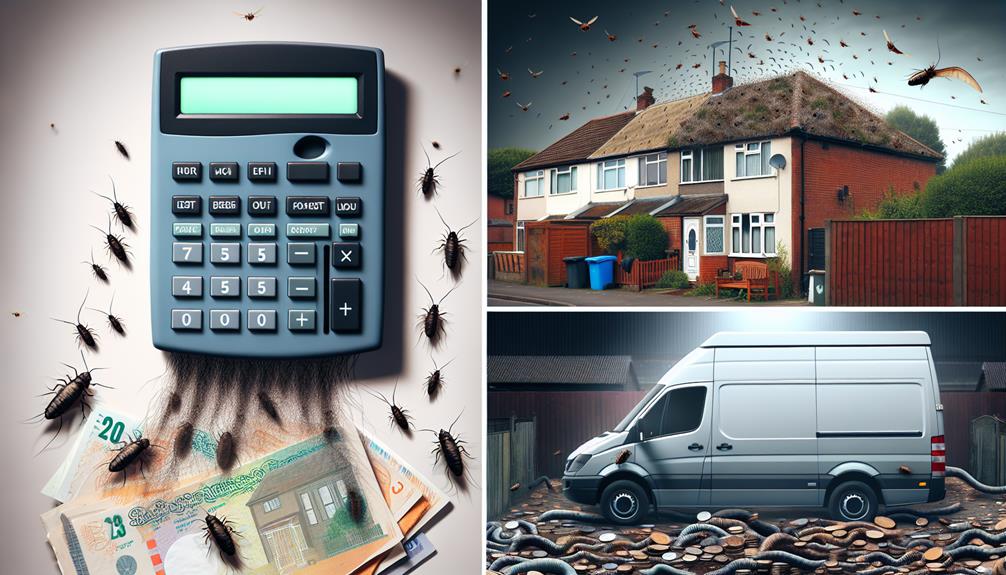Table of Contents
Are you looking for an effective way to control pests in your garden and outdoor areas without resorting to harsh chemicals? Organic pest control is the answer!
Utilizing natural methods, organic pest control can provide a safe and sustainable solution that will keep pests at bay while still protecting the environment.
Organic pest control isn’t just good for our planet – it can also be beneficial for us as well. It allows us to enjoy our gardens and outdoor spaces without having to worry about chemical residues or dangerous toxins.
Whether you’re trying to protect your plants from pesky bugs or are looking for ways to maintain a healthier lifestyle, organic pest control has something to offer everyone.
Keep reading to learn more about how natural methods can help you achieve a healthy, happy outdoor space!
Identifying Common Garden Pests
Gardening is a popular hobby enjoyed by many, but it can be difficult to keep pests out of your garden and outdoor areas. Identifying common garden pests is the first step in keeping your plants healthy and happy.
There are several types of insects that may damage or even destroy plants in your garden. Aphids are small sap-sucking bugs that usually appear as clusters on tender new growth. They can also spread plant viruses if left unchecked.
Whiteflies feed on foliage and cause yellowing leaves, while mealybugs attack roots and stem with their sucking mouthparts. Slugs and snails are two molluscs that can ravage young seedlings overnight, leaving behind holes in both fruits and vegetables alike.
In addition to these insect pests, fungal diseases such as powdery mildew can weaken vulnerable plants quickly. Fungal spores travel through wind or water droplets from other infected plants nearby, so it’s important to remove any diseased parts promptly before they spread further.
With careful observation and knowledge of the various pests found in gardens, you’ll be better equipped to protect your precious plants from harm! Now let’s look at some methods for implementing cultural controls...
Implementing Cultural Controls
The first step in gaining control of any pest problem is by creating an environment that favours beneficial species and reduces conditions favourable for pests. This can be done through habitat modification such as removing stagnant water or removing wood piles from the area, or even by planting certain plants to attract natural predators like ladybugs and lacewings.
In addition to habitat modifications, physical barriers such as fences or screens can also be implemented to protect your garden from intruders.
Finally, eliminating food sources is another important component of controlling pests in gardens and outdoor areas. By regularly cleaning up fallen fruits and vegetables, and mowing grass frequently, we can reduce opportunities for pest infestations.
With all these methods combined together, you will create an ideal environment where organic pest control practices thrive! Now let’s look at how we can use biological controls to take our gardening game one step further.
Utilizing Biological Controls
The sun is shining and the birds are chirping, a perfect day to enjoy your garden. You’ve been admiring all of the vibrant colours when you suddenly spot an unwelcome visitor – a pesky pest has invaded! Thankfully there are natural ways to keep them away without using harsh chemicals or other methods that can be harmful to your plants.
Utilizing biological controls is one way to ensure your outdoor areas remain free from pests while also taking care of the environment at large. Biological control relies on beneficial insects like ladybugs, which feed on aphids and spider mites, two common garden pests. By introducing these helpful bugs into your garden you’re able to get rid of harmful invaders in an organic manner. Additionally, many types of nematodes eat pest larvae beneath the soil so they won’t mature into adults and damage any vegetation aboveground.
Applying Non-Chemical Insecticides
Organic pest control is an effective method for keeping your garden and outdoor areas clear of insects. Non-chemical insecticides can be used to target specific bugs while avoiding the potentially toxic effects of chemical treatments.
When it comes to choosing a non-chemical option, you have plenty of options. One popular choice involves using natural predators like ladybugs or spiders to eat pests in your garden. This requires introducing the predator species into the environment, which may involve getting them from a local nursery or buying them online.
Another option is planting companion plants that attract beneficial insects such as bees or lacewings, which feed on insects that cause damage. You also don’t have to use live creatures; diatomaceous earth and pheromone traps are two widely available synthetic products that can help with organic pest control efforts.
No matter what type of product you choose, proper application is essential for success. Take the time to research how much and how often the product should be applied, paying special attention to weather conditions and temperature fluctuations – both factors can greatly affect efficacy!
With these tips in mind, you can easily apply non-chemical insecticides without worrying about harming yourself or the environment in the process.
Frequently Asked Questions
What Are The Most Effective Natural Methods For Organic Pest Control?
Organic pest control is a popular way to keep your outdoor areas looking their best without using harsh chemicals. But what are the most effective natural methods for organic pest control?
There’s no one-size-fits-all solution, but some of the top options include companion planting, encouraging beneficial insects, and making sure your garden is healthy overall.
Planting certain flowers or herbs can help repel pests while also creating a beautiful space. Beneficial insects like ladybugs will eat destructive bugs that would otherwise harm plants.
And finally, prioritize soil health by composting regularly and keeping weeds in check: these practices create an environment where plants thrive and pests don’t!
Are Organic Pest Control Methods Safe For Use Around Children And Pets?
Are organic pest control methods safe for use around children and pets?
Absolutely! Natural, organic solutions are less toxic than chemical-based alternatives, making them ideal for families with young kids or furry friends.
Plus, many of the products available on the market today have been tested to ensure that they’re non-toxic and won’t harm any delicate creatures in your garden or outdoor areas.
So you can rest assured that you’ll be able to make sure pests stay away without putting anyone at risk.
How Quickly Can Organic Pest Control Methods Achieve Desired Results?
Organic pest control methods can achieve desired results quickly, depending on the specific situation.
For example, if you have a small infestation of ants or aphids in your garden, you may be able to get rid of them with just one application of an organic pesticide.
On the other hand, if you’re dealing with more serious pests like termites or rodents, it could take multiple treatments and some additional preventative measures for long-term success.
Ultimately, organic pest control is a safe and effective way to protect your family and outdoor areas from unwanted pests without using harsh chemicals.
Are Organic Pest Control Methods More Expensive Than Chemical Solutions?
When it comes to pest control, you may be wondering if organic methods are more expensive than chemical solutions.
The answer is that while organic pest control can have a higher upfront cost, in the long term they are often less expensive and can provide better results.
Organic products usually contain natural ingredients so there’s no need for constantly re-applying or buying new supplies every season, which makes them an excellent option for anyone looking for eco-friendly solutions without breaking the bank!
Are Organic Pest Control Methods Suitable For Use On Edible Plants?
Organic pest control is a popular choice for home gardeners, but are these methods suitable for edible plants?
The answer to this question depends on the type of organic pest control being used.
Some natural remedies can be safe and effective when applied properly; however, other solutions may require more caution due to their toxicity levels or potential damage to crops.
It’s important to research any product before use and make sure it won’t harm your edibles!
You may also enjoy reading this article
Was This Article Helpful?
- Please provide feedback and comments to help us improve our content.
- Share your experiences and any additional tips you have for dealing with pests.
Share this Post



